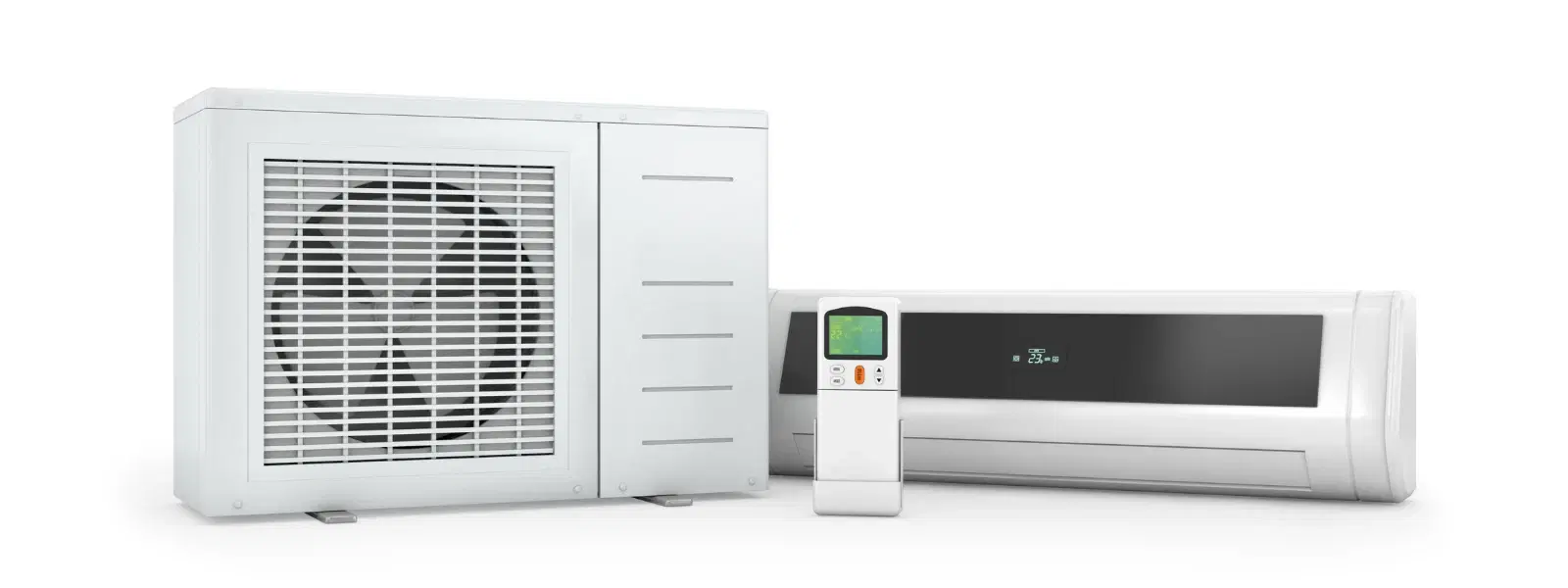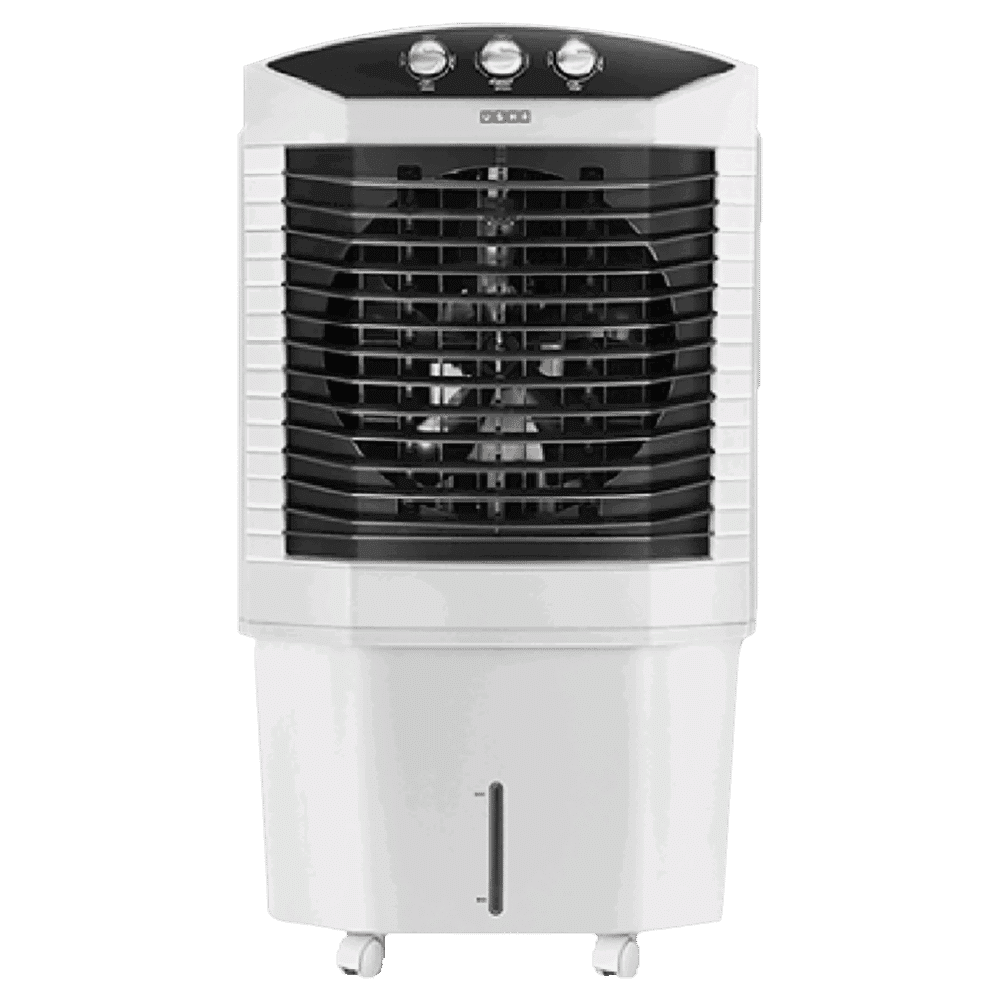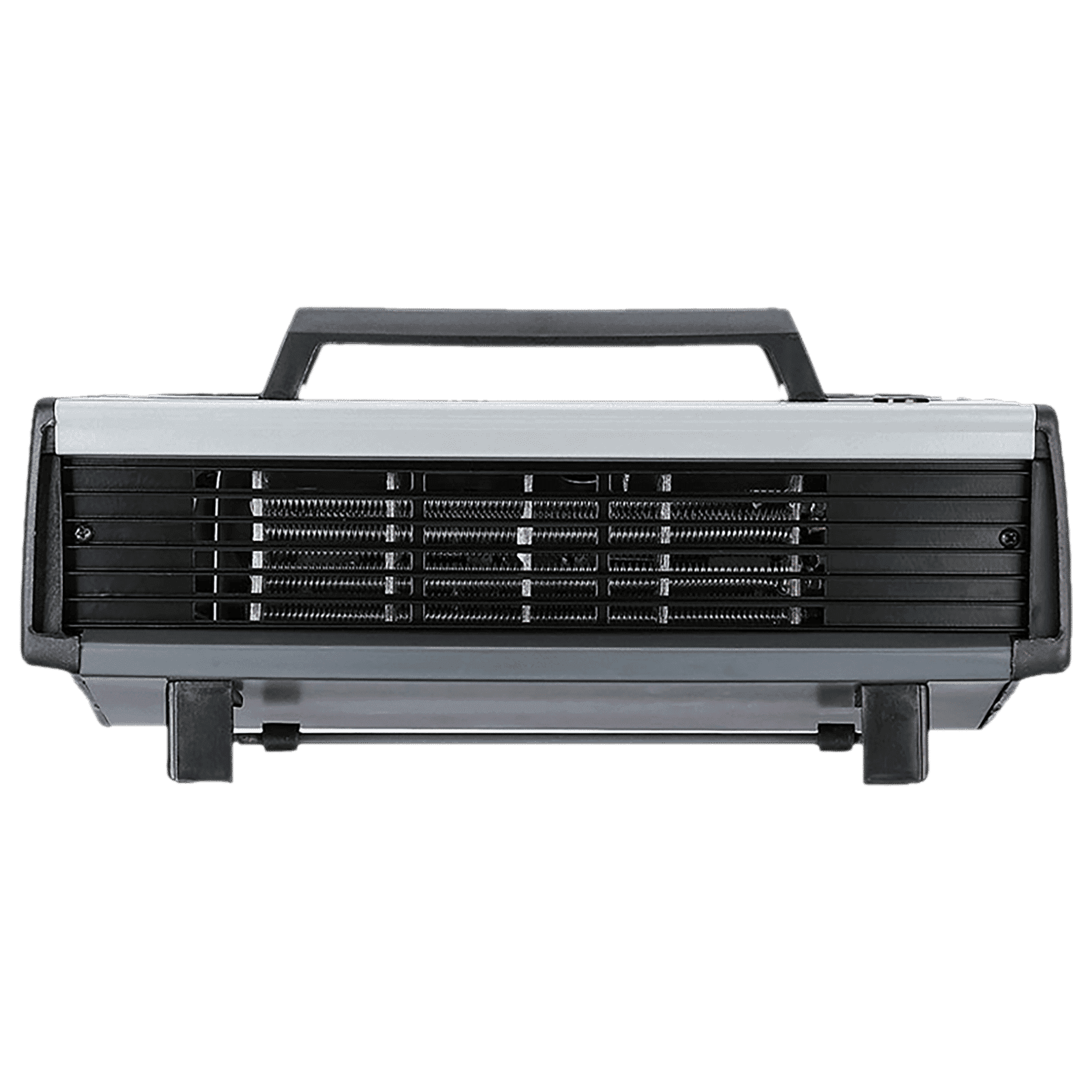
Home Appliances
•06 min read

Buy Usha Aerostyle 35 Litres Tower Air Cooler (Anti-Bacterial Tank, 4664135AST1E93N, White) online at best prices from Croma. Check product details, reviews & more. Shop now!
Are you stuck between choosing a cooler or an air conditioner for your home? You're not alone. Many homeowners face this dilemma when trying to find the best cooling option for their needs. Choosing the right home cooling system is crucial for comfort and energy efficiency. With numerous options available, understanding the differences between coolers and air conditioners can help you make an informed decision. Let's dive into the details of which is better: cooler or AC.
Cooler vs Air Conditioner: A cooler, often known as an evaporative cooler, works by drawing hot air through water-soaked pads, which cools the air before it is circulated throughout the room. On the other hand, an air conditioner uses a refrigeration cycle to extract heat and humidity from the indoor air and expel it outside, providing a cooler and drier environment.
Primary Functionality: Coolers employ evaporative cooling, which is effective in dry climates, while air conditioners use a refrigeration cycle, making them suitable for various climates, including humid areas. This fundamental difference in operation significantly impacts their performance, cost, and energy efficiency.
Cost and Installation: Coolers generally have a lower initial cost compared to air conditioners. They are also easier and less expensive to install, often requiring minimal modifications to your home. Air conditioners, however, can be more expensive upfront and may require professional installation, which adds to the overall cost. For instance, a basic cooler might cost around ₹5,000-₹10,000, whereas a decent air conditioner could range from ₹20,000-₹50,000, excluding installation charges.
Energy Efficiency: When it comes to energy consumption, coolers are more energy-efficient than air conditioners, as they use less electricity. This makes coolers a more sustainable option for those looking to reduce their energy bills. Energy-efficient cooling options are available in both categories, but coolers typically have the edge in this aspect. For example, an evaporative cooler might consume around 100 watts of power, while a standard air conditioner could use anywhere between 1,000 to 2,000 watts, depending on the capacity.
Maintenance: Coolers require regular maintenance, such as cleaning the water tank and pads to prevent mold and bacteria buildup. Air conditioners also need upkeep, including cleaning filters and periodic servicing to ensure optimal performance. While both systems require maintenance, the costs and frequency may vary. Coolers might need more frequent but less expensive maintenance, whereas air conditioners could have higher maintenance costs but less frequent service intervals.
Air Cooler Benefits: The main air cooler benefits include cost-effectiveness, energy efficiency, and eco-friendliness. Coolers are less expensive to operate and have a lower environmental impact due to their lower energy consumption. Additionally, coolers add moisture to the air, which can be beneficial in arid regions, making the environment more comfortable.
Air Conditioner Advantages: On the other hand, air conditioner advantages include superior cooling, the ability to control humidity, and improved air filtration. Air conditioners can maintain a consistent temperature and reduce indoor humidity, making them ideal for hot and humid climates. They also help in filtering out dust, pollen, and other allergens, improving indoor air quality.

Buy USHA DYNAMO 50 Litres Desert Air Cooler with Inverter Compatible (Thermal Overload Protection, White) online at best prices from Croma. Check product details, reviews & more. Shop now!
Climate Suitability: Coolers are best suited for dry climates, as they add moisture to the air. Air conditioners are more versatile and can be used in various climates, including humid areas where coolers may not be as effective. For instance, in cities like Delhi or Jaipur, coolers may perform well, while in coastal areas like Mumbai or Chennai, air conditioners would be more suitable.
Space and Portability: Coolers are generally more portable and can be moved from room to room, making them a flexible option for cooling different areas of your home. Air conditioners, especially window units and split systems, are less portable but can provide more consistent cooling for larger spaces. Portable air conditioners are available, but they are typically less efficient compared to their fixed counterparts.
User Preferences: When choosing between a cooler and an air conditioner, consider your preferences for noise levels, aesthetic appeal, and additional features. Coolers are typically quieter than air conditioners, but some users may prefer the sleek design and advanced features of modern air conditioners. For example, smart air conditioners can be controlled via smartphone apps, offering convenience and additional functionality.
Did You Know? In extremely dry climates, coolers can double as humidifiers, adding moisture to the air and making the environment more comfortable. This can be a significant advantage for those living in arid regions. Additionally, some advanced coolers come with air purification features, further enhancing indoor air quality.
Coolers are generally more cost-effective due to their lower initial cost and energy consumption. However, air conditioners may provide better long-term value in humid climates, where their dehumidifying capabilities are beneficial.
Air coolers are less effective in humid climates, as they add moisture to the air. Air conditioners are better suited for such environments, as they can remove excess humidity and provide more efficient cooling.

Easy to Carry Handle</li><li>1 Year Warranty</li></ul>
Air conditioners require regular maintenance, including cleaning or replacing filters, checking refrigerant levels, and periodic professional servicing to ensure optimal performance. Regular maintenance can help extend the lifespan of the unit and improve energy efficiency.
Consider your climate, space, and cooling needs. Portable coolers are more energy-efficient and suitable for dry climates, while portable air conditioners provide better cooling in humid environments. Additionally, think about the ease of installation and any specific features you might need, like remote control or programmable timers.
Yes, there are many energy-efficient air conditioners available that use advanced technology to reduce energy consumption and lower electricity bills. Look for models with high Energy Efficiency Ratio (EER) ratings or those certified by the Bureau of Energy Efficiency (BEE) in India for better performance.
Tata Neu and Croma offer a wide range of cooling solutions, from coolers to advanced air conditioners. You can enjoy the convenience of shopping online or in-store, earn NeuCoins on your purchases, and benefit from expert guidance and express delivery services.
In summary, the choice between a cooler and an air conditioner depends on various factors, including your budget, climate, and cooling needs. Coolers are cost-effective and energy-efficient, making them ideal for dry climates. Air conditioners offer superior cooling, humidity control, and air filtration, making them suitable for a wider range of environments. Whether you prioritize cost, energy efficiency, or advanced features, understanding the differences can help you make an informed decision.
Explore Tata Neu and Croma for a wide range of cooling solutions. With NeuCoins rewards, express delivery (check availability), and expert guidance, Tata Neu and Croma ensure a seamless and rewarding shopping experience. Trust in Tata Neu's support and reliability for all your home cooling system needs. Discover the perfect cooling solution for your home, backed by the trusted Tata brand and Croma's technological expertise.